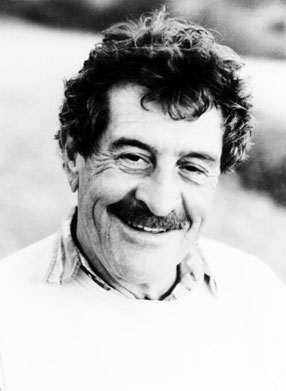
Last Saturday people from all over California and beyond gathered at the Santa Clara Mission Church to remember the life of the beloved “Senator John” Vasconcellos, who died on May 24, and share their reminiscences of a long life well-lived.
Beyond Vasconcellos’ immense portfolio of achievements over 38 years in the California legislature, there was one thing his friends spoke about repeatedly. That was his core belief that politics and governance can be based on our best aspirations, not our worst fears.
This conviction came from Vasconcellos’ own personal journey.
A Santa Clara native with a Portuguese father and a German mother, Vasconcellos was high-achieving student, attending Bellarmine Prep and Santa Clara University. He was also deeply sensitive and devoutly Catholic. So overcome was he with self-doubt and feelings of unworthiness bred by the sin-and-guilt saturated religion of pre-Vatican II Catholicism, he voted against himself in an eighth grade class election and lost by one vote, he told the Weekly in a 2007 interview.
That eighth grade experience, however, didn’t prevent him from graduating from high school as valedictorian and class president, and later being president of his class at SCU law school. After serving in the army, and then on the staff of Gov. Edmund “Pat” Brown, he ran for a California State Assembly seat in 1966.
But his personal demons continued to hound him, and the same year he discovered the human potential movement and began psychotherapy. That led him to the “aha moment” that would inform the rest of his life: Original Goodness instead of Original Sin. “We all have goodness. [That should inform] how we do health care, how we raise children, how we curb violence, how we deal with addiction, how we deal with aging,” he told the Weekly.
He put that conviction to work in the State Assembly. “We’re all here for a common purpose, to help govern a state the 36 million people, to meet its problems,” he said. “We all have the same goals. We’d all like a peaceful world, good health for our kids, a safe society, and good schools. From that, we can negotiate the means to get there. That diffuses the whole thing of calling each other names.
“In almost all the efforts I did – self esteem, economic development, aging, medical marijuana, prison reform – I identified a Republican, often quite conservative, developed a relationship, assumed that he or she was there – as I was – to make sense of what’s going on, and invited them into how we could figure out how to make something work,” he continued. “People don’t think you can have trust in politics. You’ve got to remind them that they thought we couldn’t get into space.”
Even when his ideas were ridiculed, he turned it to his own advantage. When Doonesbury cartoonist Garry Trudeau made Vasconcellos’ California Task Force to Promote Self-Esteem and Personal and Social Responsibility the centerpiece of the comic strip for several weeks, Vasconcellos told People Magazine that in terms of publicity, Trudeau had done in three weeks what he’d thought would take three years.
As the chair of the powerful Assembly Ways and Means committee, he was pragmatic and adept at wielding political power to build coalitions – whether for a master plan for California education, phasing out fluorocarbons to preserve the ozone layer, funding for AIDS research when that was still a controversial issue, saving San Jose’s Japantown, child care, or nurturing the growth of a then-young Silicon Valley. “In each of those areas, I wrote major legislation that passed, most often signed with bipartisan support. I established a relationship of trust and a common purpose.”
Although term limits forced Vasconcellos out the legislature in 2004, he continued his mission until his death, through his Politics of Trust (www.politicsoftrust.net) non-profit.
Speaking at a local 2012 event honoring him, he said of Sacramento’s gridlock, “Politics is broken, and I’ve never been so frightened for the future. My charter is finding a new politics. We all simply want to be people who can live lives of integrity. We belong to ourselves and each other, and we need to design politics based on that.”
In the final analysis, despite rejecting much of his Catholic training – he remained a life-long agnostic – Vasconcellos took what was perhaps most important from his Jesuit education, best summed up by Rev. Peter Pabst, SJ last Saturday. “He lived the motto of Jesuit education: a life lived in service to others. Let us be women and men for others like John.”
Donations in Vasconcellos’ memory can be made to the John Vasconcellos Institute for Community and Civic Engagement, c/o Foothill De Anza Community College Foundation, 21250 Stevens Creek Blvd, Cupertino, Calif. 95014.
